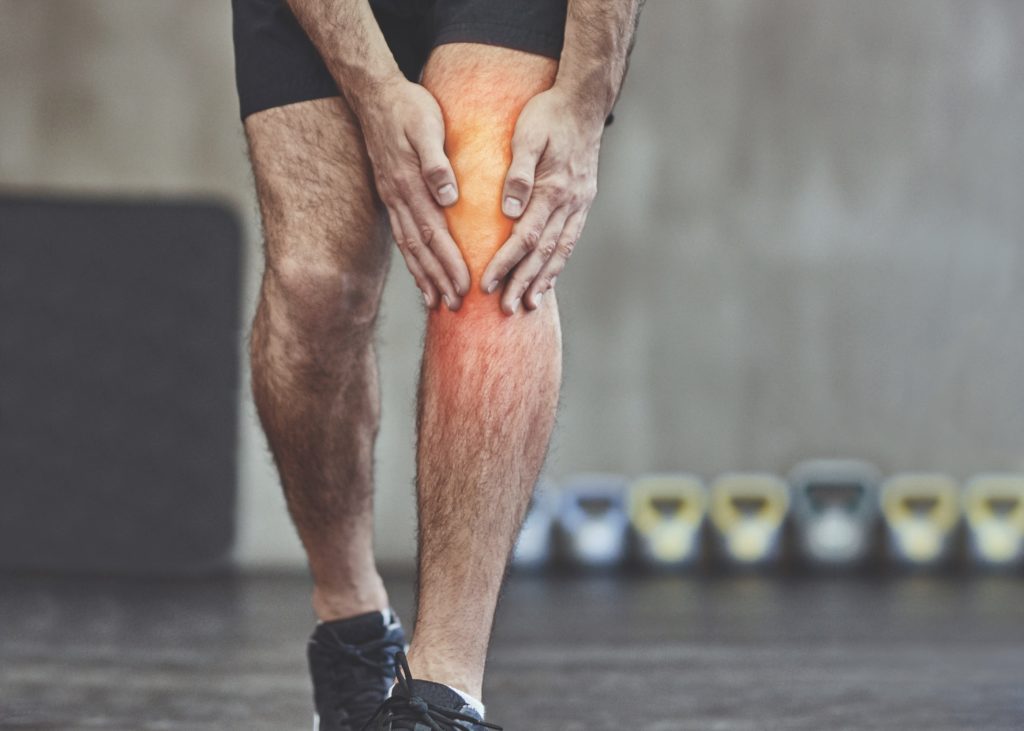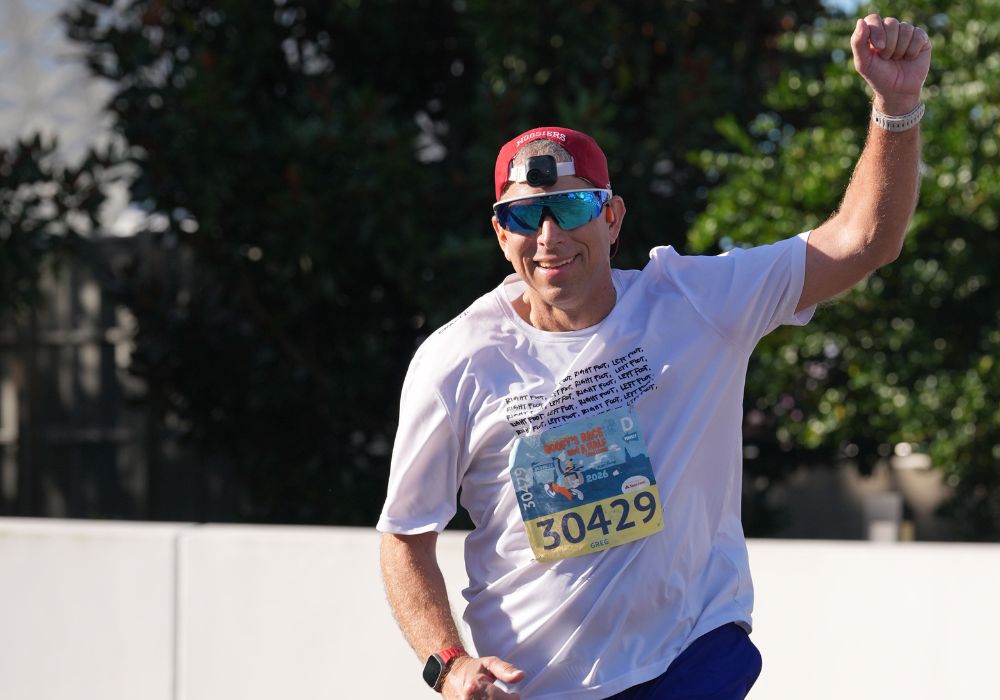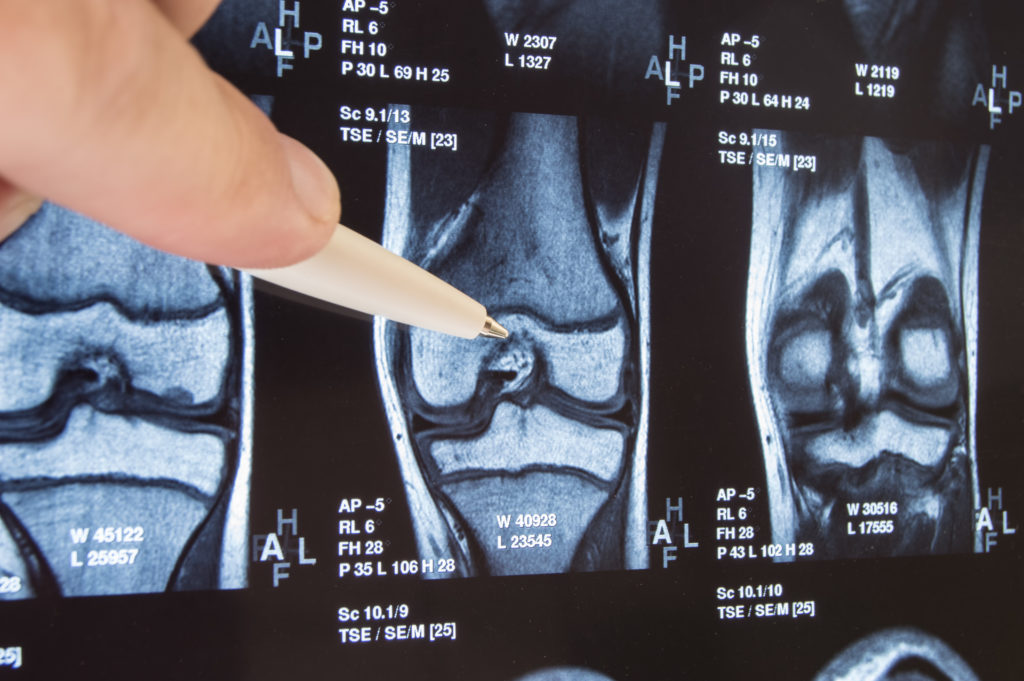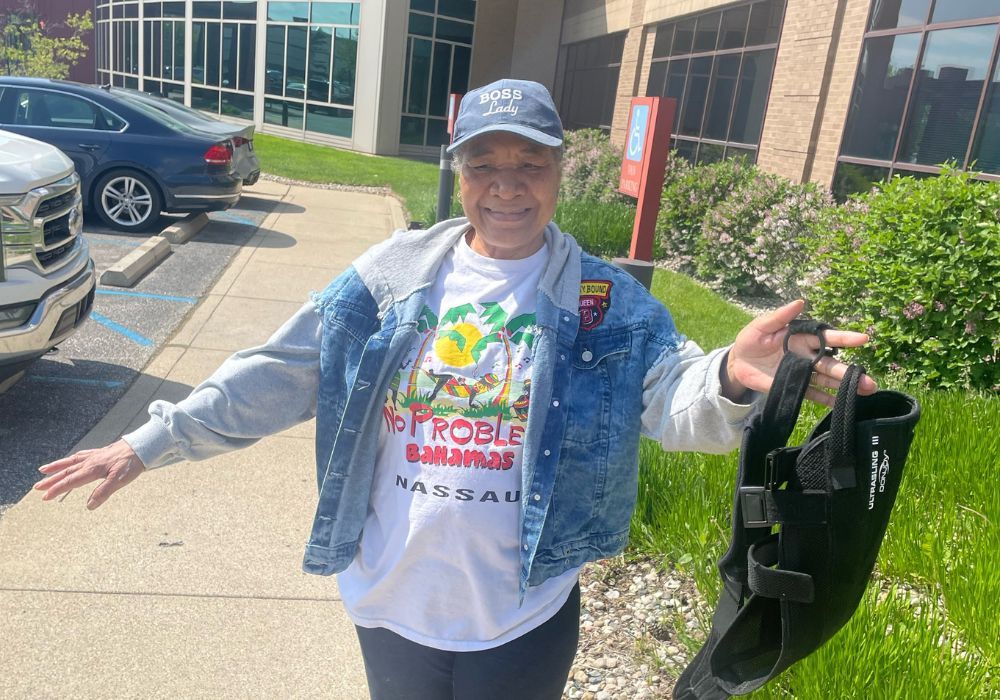THIS POST IS PART OF THE ULTIMATE GUIDE TO ORTHOBIOLOGIC THERAPIES
Platelet-rich plasma (PRP) injections are a hot topic in many medical specialties. In orthopedics, many patients are interested in its ability to decrease the knee pain associated with osteoarthritis. Interest is especially high for patients who are searching for ways to delay knee replacement surgery. Many patients are wondering if it can benefit their specific circumstances and help them return to an active lifestyle.
Dr. Jack Farr, OrthoIndy knee preservation and cartilage restoration specialist makes PRP treatments available to help aid in pain relief for his patients with mild to moderate osteoarthritis. Here he answers common questions about PRP injections.
What is platelet-rich plasma?
Blood is composed of a fluid component called plasma that can be separated from the small, solid components (red cells, white cells and platelets). PRP simply means the prepared plasma has more platelets per volume than the patient’s own whole blood. The concentration of platelets can be two to ten times greater (or richer) than the patient’s blood and thus more factors.
During tissue injury the platelets aid in clotting blood and as the “first responders” to injury, they contain over 1,500 proteins including anti-inflammatory and growth factors. These factors aid in initiating the healing response at a site of injury and when used as a knee injection can improve the balance of the inflamed knee environment.
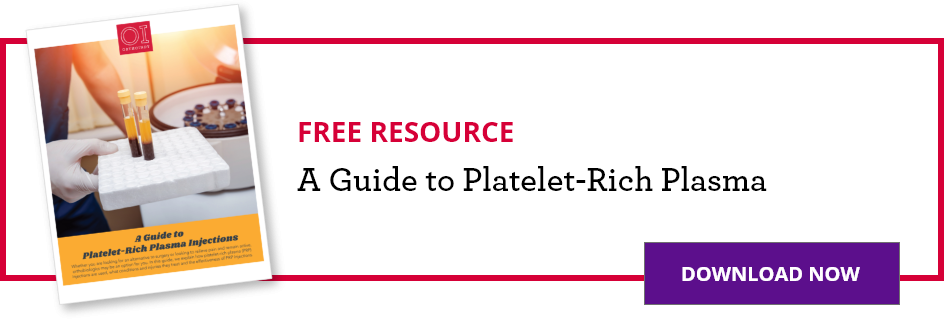
What are PRP injections?
To prepare a platelet-rich plasma injection, blood is drawn from the patient. The platelets are separated from other blood cells and are concentrated by spinning at high speeds in a centrifuge. The concentrated platelets and the plasma portion are then ready for injection.
There are many ways to prepare PRP. Dr. Farr uses a type of PRP called Autologous Conditioned Plasma®. This type of PRP has been shown in studies to diminish symptoms of knee arthritis and is administered in the same manner as other knee injections with local skin numbing.
What are the benefits of PRP injections?
- Help delay or avoid major surgery
- Help with healing after a surgical procedure
- Recovery is faster than a surgical procedure
- Treatment may be in the office as an outpatient procedure
- They are natural substances found within the body rather than drugs or chemicals
Am I a good candidate for PRP injections?
Your OrthoIndy physician will work with you to determine the best course of treatment for your specific injury and will discuss whether PRP therapy is an option.
Answer the following questions to see if you are a candidate for PRP.
- Do you have arthritis (osteoarthritis)?
- Has anti-inflammatory medication failed to relieve your pain?
- Did bracing fail to help your condition?
- Has physical therapy failed to help relieve pain and restore function?
- Did cortisone injections fail to help improve your condition?
If you answered yes to all the above questions, then a PRP injection may be right for you. Your OrthoIndy doctor will work with you to determine the best course of treatment for your specific orthopedic injury or condition.
What to expect during a PRP injection
The PRP will be prepared and injected at an OrthoIndy clinic and takes about 30 to 45 minutes in total. The following is the step-by-step process for preparing for a PRP injection.
Are PRP injections covered by my insurance?
Most insurance programs, Medicare and Medicaid label PRP injections as “experimental or investigational” and do not pay for these treatments. Consult with your Health Savings Account (HSA) adviser, as prescribed medical treatments may be allowed for payments from your HSA account.
How much do PRP injections cost?
Because PRP injections aren’t covered by insurance, patients are expected to pay for the injection at the time of the visit. Download our pricing sheet to learn more about the costs of the various orthobiologic treatments.
Are there other injection options?
Yes, if PRP injections are not the best option for you, OrthoIndy also offers variants of tissue and cell injections (incorrectly know as stem cell injections) for knee pain. Talk with your OrthoIndy specialist and learn the best option for your knee pain treatment.
To make an appointment with Dr. Farr please call 317.884.5163 or learn more about cartilage restoration at OrthoIndy.
Schedule an appointment
Your well-being is important to us. Click the button below or call us to schedule an appointment with one of our orthopedic specialists. If your injury or condition is recent, you can walk right into one of our OrthoIndy Urgent Care locations for immediate care. For rehabilitation and physical therapy, no referral is needed to see one of our physical therapists.


